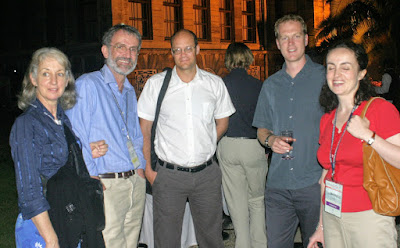Environmentalist Greta Thunberg has criticised the government's decision not to intervene in plans for the UK's first deep coal mine in 30 years. The West Cumbria Mining development has led to protests by climate campaigners, including of course Extinction Rebellion, who have argued that the new mine, which will reportedly emit 8m tonnes of carbon annually, contradicts the UK’s pledge to be carbon neutral by 2050 (posting of 12 October 2020).
 |
| Extinction Rebellion Cumbria staged a "climate change crime scene" outside the council in October (Source BBC) |
Ms. Thunberg tweeted to her 4.4 million followers last week "The UK government has decided not to intervene with the plans of opening a brand new English coal mine. This really shows the true meaning of so called “net zero 2050”. These vague, insufficient targets long into the future basically mean nothing today".
Her tweet has prompted hundreds of comments, the majority applauding her stand but not all, thankfully. Many of them appreciate why this mine is being developed but their comments are often met with blatant abuse from those totally ignorant of the difference between thermal and metallurgical coal.
West Cumbria Mining plans to mine under the seabed to extract around 2.7m tonnes of metallurgical coal annually, which is essentially, and solely, for use within industry and not for power stations. Steel and chemical factories in Scunthorpe, Lincolnshire and Port Talbot are expected to utilise the mine's output, with the company arguing that the coal will replace imports and will not increase emissions because it will not be shipped over from the US, Canada, Russia and Australia.
What Greta Thunberg, and other extremists with limited technological knowledge, do not realise is that achieving a carbon-free society will require vast quantities of raw materials to build the electric vehicles and wind turbines of the future, and the most essential material will be steel, the ubiquitous alloy used in construction. A single wind-turbine, for instance, requires well over 300 tonnes of steel, and to make steel we need metallurgical coal from which we produce coke for the iron blast furnaces.
Although environmental considerations are driving the introduction of new technologies, blast furnace related technologies for the production of pig-iron are still by far the most common methods for ironmaking and are predicted to be the single largest process until 2050. The blast furnace is reliant on a plentiful supply of coke, the hot air blast oxidising the coke to carbon monoxide, which reduces the iron ore, hematite, to pig-iron, a very brittle alloy, containing around 4% carbon. Liquid pig-iron is then refined in oxygen converters, which reduce the carbon content to a value dependent on the use for the steel, 'mild steel', which is used for general engineering applications, having a carbon content of round 0.2%.
It is unlikely that technologies that do not use liquid pig iron will dominate in the coming decades, and ore, coal and limestone will remain the main raw materials used to make pig-iron. Existing technologies that produce liquid pig-iron outside the blast furnace are considerably inferior to blast furnace smelting with respect to productivity and integral total fuel consumption, which includes the fuel costs incurred to produce coke, agglomerated ore-bearing materials, hot blast air, and oxygen. The blast furnace process is also the leading technology in terms of the scale of production and has the lowest production costs.
So it may seem paradoxical, but mining of coal is essential in the quest for a zero-carbon society. Metallurgical coal is required to produce steel, but it is rarely appreciated that fossil fuels, whether from coal or gas, will also be needed for some time yet, in order to help build the electric vehicles and wind turbines of the future. There just aren't enough renewable sources of energy at present to provide the energy to mine and extract the necessary raw materials and to manufacture the multitude of renewable energy devices and electric vehicles which are proposed.
We have talked a lot on the blog about educating mining sceptics, but the unfortunate thing is that those that we really need to educate are often those with the highest profile, who attract hordes of unthinking followers.
@barrywills




























-EDIT.jpg)










